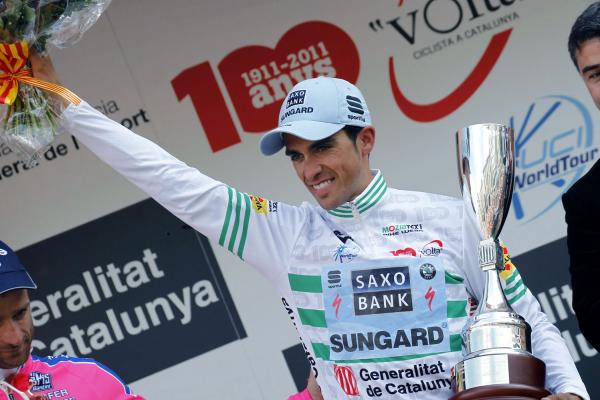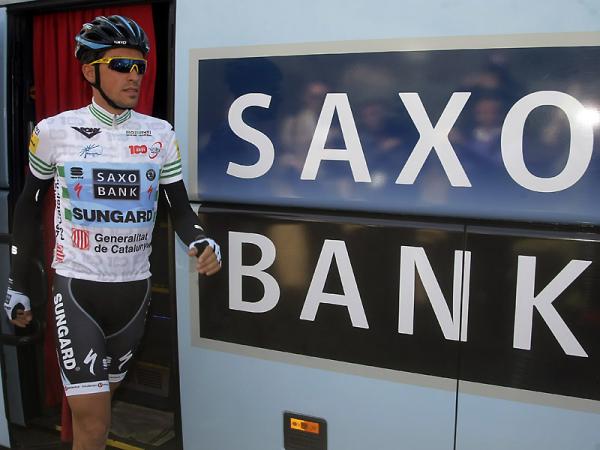CAS will clear Contador, says Spanish cycling lawyer
Spanish anti-doping law "even tougher" than international law


Luis Sanz, lawyer for the Spanish Cycling Federation (RFEC) says he is optimistic that investigations by the Court of Arbitration for Sport (CAS) in regards to Alberto Contador's positive test for Clenbuterol, will fall in the Saxo Bank Sungard rider's favour.
"I am quite optimistic," Sanz told Europa Press. "The resolution issued by the Competition Committee of the Spanish Federation meets not only the law but the reality of the facts. With this, surely the CAS will come to the same conclusion as what happened in Spain."
Both the international Cycling Union (UCI) and World Anti-Doping Authority (WADA) are appealing the RFEC's decision to acquit Contador.
The Spaniard tested positive to Clenbuterol following a doping control on July 21, 2010 during the second rest day of the Tour de France in Pau, in the Pyrenees. The day after, Contador set up overall victory by finishing in the same time as Andy Schleck at the summit of the Col du Tourmalet.
Contador's defence has been based on the premise that he was unaware that he ingested the banned substance, which he did via a piece of contaminated filet mignon. Article 296 of the UCI's anti-doping regulations says that an athlete can be exonerated if they prove that they had inadvertently ingested a banned product through no fault or negligence on their part.
Sanz was one of the guests at the symposium 'Doping and the media spotlight,' which served as a coda to the launch of José María García-Luján's novel, 'The flame of victory' about an athlete who, like Contador was involved in a doping case and has to fight for his innocence.
Sanz, who was emphatic in his view that Spanish anti-doping law was "even tougher" than international law, believes the task at hand for the CAS should be relatively simple.
Get The Leadout Newsletter
The latest race content, interviews, features, reviews and expert buying guides, direct to your inbox!
"It will be a review of work done in Spain," he said. "On an international level, there was a suggestion that there was interference from politicians and the media. That really never happened.
"There has been a commendable job, both by the athlete to prove his innocence and by the Spanish Federation to review and consider all the arguments of defence. Shortly, international organizations will agree."
Sanz also noted that "it would be a discredit" to the RFEC ultimately, if the CAS were to overturn the national body's decision. "Ultimately, in the field of sports law penalties for doping are very thin lines; the interpretive criteria can be extremely subjective."
As a sports journalist and producer since 1997, Jane has covered Olympic and Commonwealth Games, rugby league, motorsport, cricket, surfing, triathlon, rugby union, and golf for print, radio, television and online. However her enduring passion has been cycling.
Jane is a former Australian Editor of Cyclingnews from 2011 to 2013 and continues to freelance within the cycling industry.